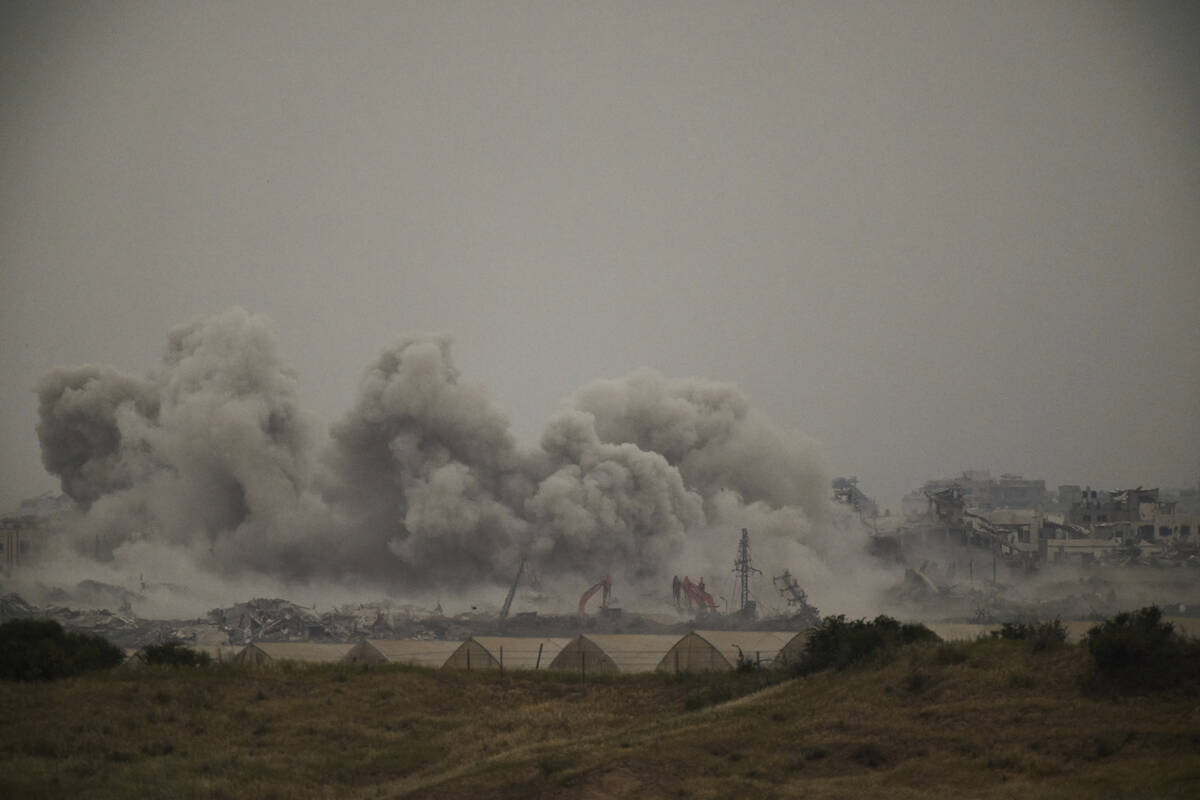Suspected US strikes in Yemen kill at least 10, Houthi terrorists say
Suspected U.S. airstrikes that pounded the area around Yemen’s Red Sea port city of Hodeida have killed at least 10 people, the Iran-backed Houthi terrorists said Wednesday. The Houthis meanwhile aired footage they said showed the debris left after shooting down another American MQ-9 Reaper drone.
The strikes Tuesday night hit around Hodeida’s al-Hawak district, the terrorists said, and wounded 16 people. The area is home to the city’s airport, which the terrorists have used in the past to target shipping in the Red Sea.
Since its start, the intense campaign of U.S. airstrikes targeting the terrorists over their attacks on shipping in Mideast waters — related to the Israel-Hamas war — has killed at least 107 people, according to casualty figures released Wednesday by the Houthis.
Other strikes targeted Yemen’s mountainous Amran governorate, north of the terrorist-held capital of Sanaa. There, the Houthis described American strikes hitting telecommunication equipment. Previous U.S. strikes also targeted telecommunications gear in Amran near Jebel Aswad, or the “Black Mountain.”
Strikes later apparently targeted Jebel Nuqum, near Sanaa. Others hit Dhamar and Ibb governorates, wounding three.
The U.S. military’s Central Command, which oversees American military operations, did not immediately acknowledge the strikes. That follows a pattern for the command, which now has authorization from the White House to conduct strikes at will in the campaign that began March 15.
The American military also hasn’t been providing any information on targets hit. The White House has said over 200 strikes have been conducted so far.
Defense Secretary Pete Hegseth, speaking in the Oval Office on Monday during a visit by Israeli Prime Minister Benjamin Netanyahu, warned that America was “not going to relent” in its campaign targeting the Houthis.
On Wednesday, the State Department said the U.S. “will not tolerate any country or commercial entity providing support to foreign terrorist organizations, such as the Houthis, including offloading ships and provisioning oil at Houthi-controlled ports.” That likely will further squeeze the terrorists, who already have had problems in their territory with bad gasoline destroying vehicle engines.
Meanwhile, in Gaza, renewed fighting showed no signs of slowing.
The Israeli military said it struck a senior Hamas terrorist who it said was behind attacks emanating from Shijaiyah.
As it ratchets up pressure on Hamas to agree to free hostages, Israel has issued sweeping evacuation orders for parts of Gaza, including Shijaiyah. It has pledged to seize large parts of Gaza and establish a new security corridor through it.
Earlier this week, Hamas fired its strongest volley of rockets since the ceasefire collapsed, lobbing 10 projectiles toward southern Israel.
Israel resumed its war against Hamas in Gaza last month after an eight-week ceasefire collapsed. The ceasefire led to the release of 25 living Israeli hostages held in Gaza and the return of the remains of eight others, in exchange for hundreds of Palestinian prisoners.
Mediators have since attempted to bring the sides to a bridging agreement that would again pause the war, free hostages and open the door for talks on the war’s end, something Israeli Prime Minister Benjamin Netanyahu said he won’t agree to until Hamas is defeated. Hamas wants the war to end before it frees the remaining 59 hostages it holds, 24 of whom are believed to be alive.
Netanyahu traveled to Washington this week to meet with President Donald Trump. In their public statements, they offered sympathy for the plight of the hostages but shed little light on any emerging deal to suspend the fighting.
The war was sparked by the Oct. 7, 2023, Hamas-led terrorist attacks on southern Israel, which killed 1,200 people, mostly civilians. Hamas terrorists took 250 people captive.
The war has killed more than 50,000 Palestinians in Gaza, according to the Hamas-run Health Ministry, which does not differentiate between combatants and civilians in its count.
Israel blames the deaths of Palestinian civilians on the terrorist group, because it embeds itself in dense urban areas.

















